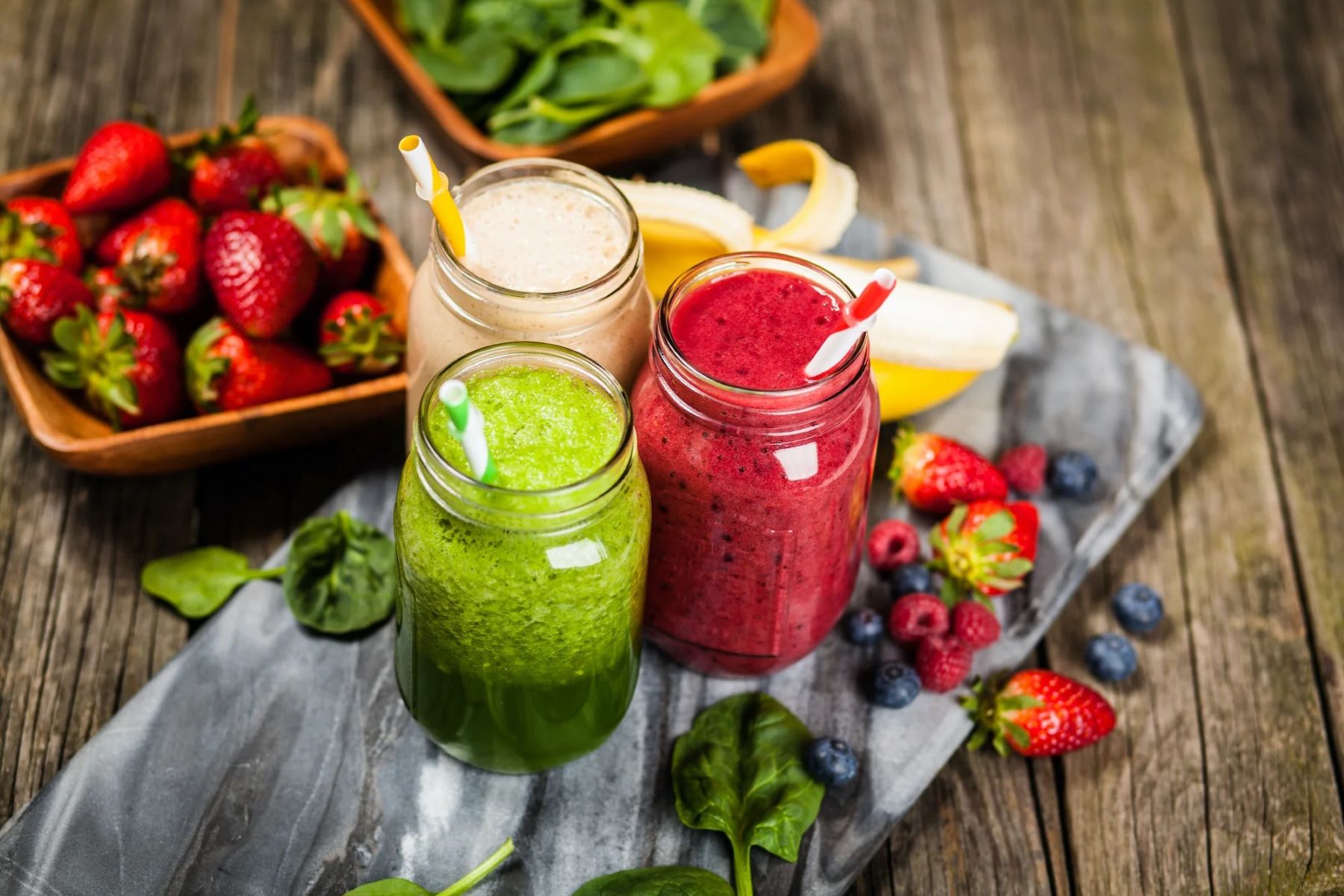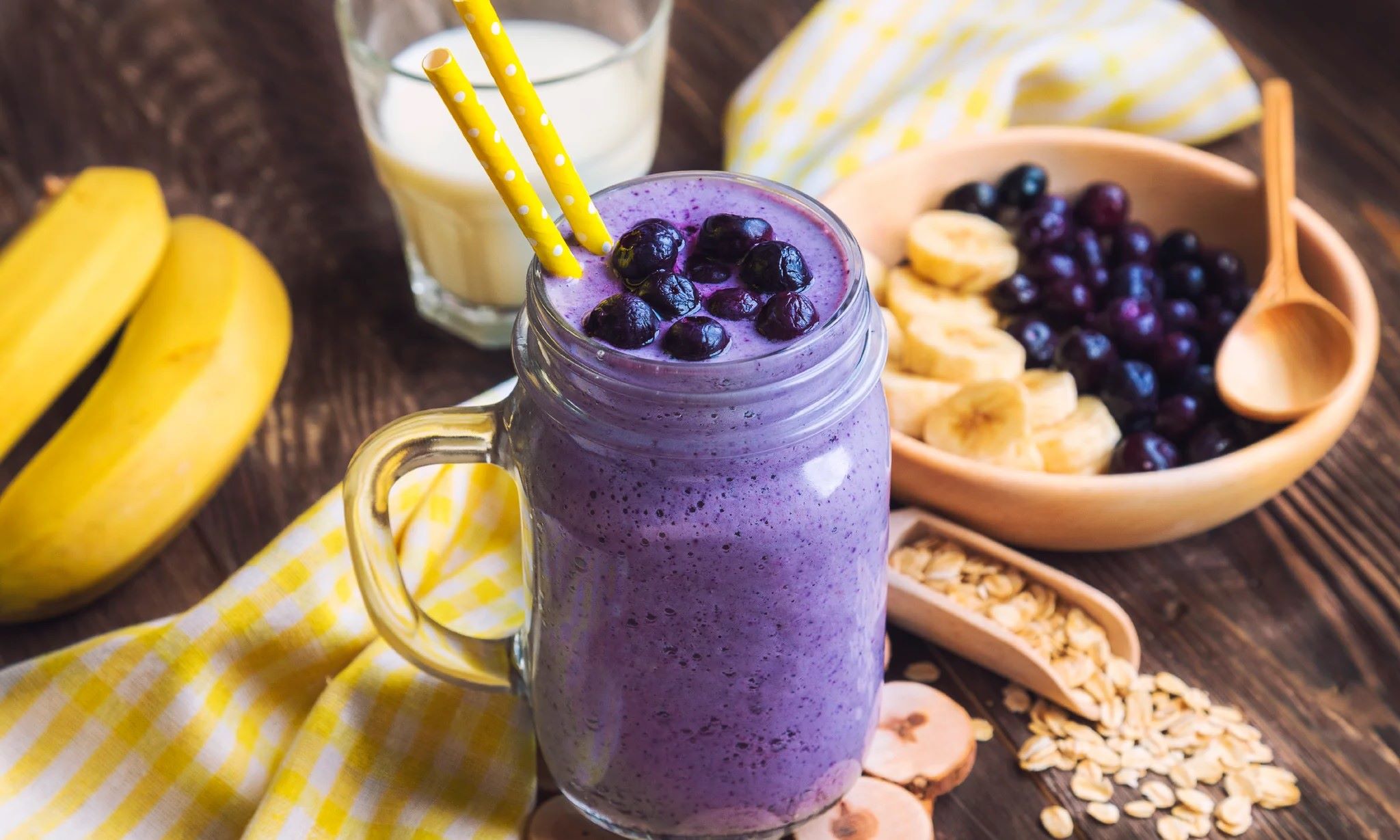Home>Eating>The Role Of Smoothies In Weight Loss: Understanding Their Benefits


Eating
The Role Of Smoothies In Weight Loss: Understanding Their Benefits
Published: February 28, 2024
Discover the benefits of incorporating smoothies into your eating routine for weight loss. Learn how smoothies can support your healthy eating habits.
(Many of the links in this article redirect to a specific reviewed product. Your purchase of these products through affiliate links helps to generate commission for Simplelivingeating.com, at no extra cost. Learn more)
Table of Contents
Introduction
Are you looking to shed some extra pounds and improve your overall health? If so, you may have heard about the role of smoothies in weight loss. But what exactly is it about these blended beverages that make them so popular among those on a weight loss journey? In this article, we will delve into the benefits of smoothies and how they can aid in weight loss. Whether you're a smoothie enthusiast or just starting to explore the world of blended fruits and vegetables, understanding the potential impact of smoothies on your weight loss goals is essential. So, let's dive in and uncover the truth about the role of smoothies in weight loss!
The Nutritional Value of Smoothies
When it comes to the nutritional value of smoothies, these blended beverages pack a powerful punch. Here's a breakdown of the essential nutrients found in smoothies:
1. Vitamins and Minerals
Smoothies are an excellent source of essential vitamins and minerals. Fruits and vegetables, the primary ingredients in most smoothies, are rich in vitamins A, C, and K, as well as minerals like potassium, magnesium, and folate. These nutrients play a crucial role in supporting overall health and well-being.
2. Fiber
Fiber is an important component of a healthy diet, and smoothies can be a convenient way to increase your fiber intake. Fiber aids in digestion, helps you feel full, and can contribute to weight management by reducing hunger and cravings.
3. Antioxidants
Many fruits and vegetables used in smoothie recipes are packed with antioxidants, which help protect your cells from damage caused by free radicals. Antioxidants have been linked to a reduced risk of chronic diseases and can support your body's natural detoxification processes.
4. Protein
Adding protein to your smoothies, whether from sources like Greek yogurt, nut butter, or protein powder, can help keep you feeling full and satisfied. Protein is essential for muscle repair and growth, making it an important component of a weight loss plan.
5. Healthy Fats
Incorporating ingredients like avocado, chia seeds, or flaxseeds into your smoothies can provide a dose of healthy fats. These fats are beneficial for heart health and can contribute to a feeling of satiety, preventing overeating.
Incorporating a variety of fruits, vegetables, and other nutritious ingredients into your smoothies can provide a wide range of essential nutrients that support your overall health and well-being.
How Smoothies Can Aid in Weight Loss
-
Meal Replacement: Smoothies can serve as a convenient and nutritious meal replacement option for individuals looking to manage their weight. By blending a combination of fruits, vegetables, protein, and healthy fats, you can create a satisfying meal in a glass. This can be particularly beneficial for those who are often on the go and may struggle to prepare or consume traditional meals.
-
Portion Control: When consumed mindfully, smoothies can help with portion control. Unlike larger meals that may lead to overeating, a well-portioned smoothie can provide a controlled amount of calories and nutrients. This can be especially helpful for individuals who struggle with portion sizes and tend to overeat during meals.
-
Increased Nutrient Intake: Smoothies offer a convenient way to increase your intake of essential nutrients. By incorporating a variety of fruits, vegetables, and other nutritious ingredients into your smoothies, you can ensure that you are getting a wide range of vitamins, minerals, fiber, and antioxidants. These nutrients are essential for overall health and can support your body's natural weight management processes.
-
Satiety and Reduced Cravings: The fiber, protein, and healthy fats found in smoothies can contribute to a feeling of fullness and satisfaction. This can help reduce cravings for unhealthy snacks and prevent overeating throughout the day. By keeping you feeling satiated, smoothies can support your efforts to maintain a balanced and controlled diet.
-
Hydration: Many smoothie recipes include hydrating ingredients such as water, coconut water, or low-fat dairy. Staying hydrated is important for overall health and can also support weight management. Consuming hydrating smoothies can help you feel more satisfied and reduce the likelihood of mistaking thirst for hunger.
-
Customization: One of the key benefits of smoothies is their versatility. You can customize your smoothie to suit your nutritional needs and taste preferences. Whether you're looking to boost your protein intake, increase your fiber consumption, or incorporate specific vitamins and minerals, you can tailor your smoothie to support your weight loss goals.
By leveraging these factors, smoothies can play a valuable role in aiding weight loss efforts. However, it's important to approach smoothie consumption as part of a balanced and varied diet, rather than relying solely on these beverages for weight management.
Incorporating Smoothies into a Weight Loss Plan
Incorporating smoothies into a weight loss plan can be a strategic and effective approach to achieving your health and wellness goals. Here are some practical tips for seamlessly integrating smoothies into your weight loss journey:
1. Replace Unhealthy Snacks
Instead of reaching for sugary or high-calorie snacks, consider swapping them out for a nutrient-dense smoothie. This can help curb cravings and provide a satisfying alternative that supports your weight loss efforts.
2. Balance Your Ingredients
When creating weight loss-focused smoothies, aim to strike a balance between fruits, vegetables, protein, and healthy fats. This combination can help keep you feeling full and provide a diverse array of essential nutrients.
3. Mindful Consumption
While smoothies can be a convenient option, it's important to consume them mindfully. Avoid gulping down your smoothie and instead, take the time to savor and appreciate each sip. This mindful approach can enhance your overall eating experience and promote a sense of satisfaction.
4. Plan Ahead
Prepare your smoothie ingredients in advance to streamline the blending process. Pre-portion fruits, vegetables, and other add-ins into resealable bags or containers, making it easier to whip up a nutritious smoothie when you're short on time.
5. Experiment with Recipes
Keep your smoothie routine exciting by experimenting with different recipes and flavor combinations. This can prevent flavor fatigue and ensure that you continue to look forward to your daily dose of blended goodness.
6. Monitor Added Sugars
Be mindful of the ingredients you add to your smoothies, particularly sweeteners. Opt for natural sweeteners like honey, dates, or a moderate amount of fruits to minimize added sugars. This can help keep your smoothies in line with your weight loss objectives.
7. Pair with Physical Activity
Consider incorporating your smoothie consumption into your pre or post-workout routine. Smoothies can serve as a convenient and easily digestible source of energy and nutrients to fuel your physical activity and aid in recovery.
By incorporating these strategies, you can seamlessly integrate smoothies into your weight loss plan and harness their potential to support your overall health and wellness journey. Remember that while smoothies can be a valuable addition to your diet, they should complement a well-rounded and balanced approach to nutrition and lifestyle.
Potential Pitfalls of Using Smoothies for Weight Loss
While smoothies can offer numerous benefits for weight loss, it's essential to be mindful of potential pitfalls that may arise when incorporating them into your diet. Understanding these pitfalls can help you navigate your weight loss journey more effectively and make informed choices about your dietary habits.
-
Caloric Overload: One common pitfall of smoothie consumption is the potential for caloric overload. While smoothies can be nutrient-dense, they can also pack a significant number of calories, especially if they contain large amounts of high-calorie ingredients such as nut butters, full-fat dairy, or sweetened additives. Without careful portion control and ingredient selection, you may inadvertently consume more calories than you intended, which can hinder your weight loss efforts.
-
Liquid Calories: Unlike solid foods, liquid calories from smoothies may not register the same level of satiety, leading to a potential increase in overall calorie intake. Drinking your calories, even in the form of nutritious smoothies, can sometimes bypass the body's natural hunger and fullness cues, making it easier to consume excess calories without feeling satisfied.
-
Added Sugars: Some smoothie recipes call for the addition of sweeteners such as honey, agave nectar, or fruit juices to enhance flavor. While these natural sweeteners can contribute to the overall taste of the smoothie, they also introduce additional sugars and calories. Excessive consumption of added sugars can lead to spikes in blood sugar levels and contribute to weight gain over time.
-
Lack of Satiety: Depending on the ingredients and macronutrient composition of your smoothie, you may find that it doesn't provide the same level of satiety as a solid meal. Without adequate protein, fiber, and healthy fats, a smoothie may leave you feeling hungry shortly after consumption, potentially leading to increased snacking and overall calorie intake.
-
Nutrient Imbalance: While smoothies can be a convenient way to pack in nutrients, relying solely on these beverages for your nutritional needs may lead to an imbalance in your overall diet. It's important to ensure that you're still consuming a variety of whole foods to meet your body's diverse nutrient requirements.
-
Potential for Excessive Intake of Certain Nutrients: In some cases, excessive consumption of certain nutrients from smoothies, such as oxalates from leafy greens or fructose from fruits, can lead to digestive discomfort or other health issues. It's important to maintain a balanced approach to ingredient selection and portion sizes to avoid potential adverse effects.
By being aware of these potential pitfalls, you can take proactive steps to mitigate their impact and maximize the benefits of incorporating smoothies into your weight loss plan. With mindful ingredient selection, portion control, and a balanced approach to nutrition, you can harness the power of smoothies as a valuable tool in your weight loss journey.
Conclusion
In conclusion, the role of smoothies in weight loss is multifaceted, offering a spectrum of benefits and considerations for those seeking to manage their weight and improve their overall health. The nutritional value of smoothies, including their abundance of essential vitamins, minerals, fiber, antioxidants, protein, and healthy fats, underscores their potential to support weight loss efforts. When leveraged strategically, smoothies can aid in weight loss by serving as meal replacements, promoting portion control, increasing nutrient intake, enhancing satiety, and supporting hydration. However, it's crucial to approach smoothie consumption mindfully and be mindful of potential pitfalls such as caloric overload, liquid calories, added sugars, and nutrient imbalances. By integrating smoothies into a weight loss plan with careful consideration of ingredients, portion sizes, and overall dietary balance, individuals can harness the benefits of smoothies while mitigating potential drawbacks. Ultimately, smoothies can be a valuable addition to a holistic approach to weight management, complementing a varied and balanced diet, regular physical activity, and overall wellness practices.












